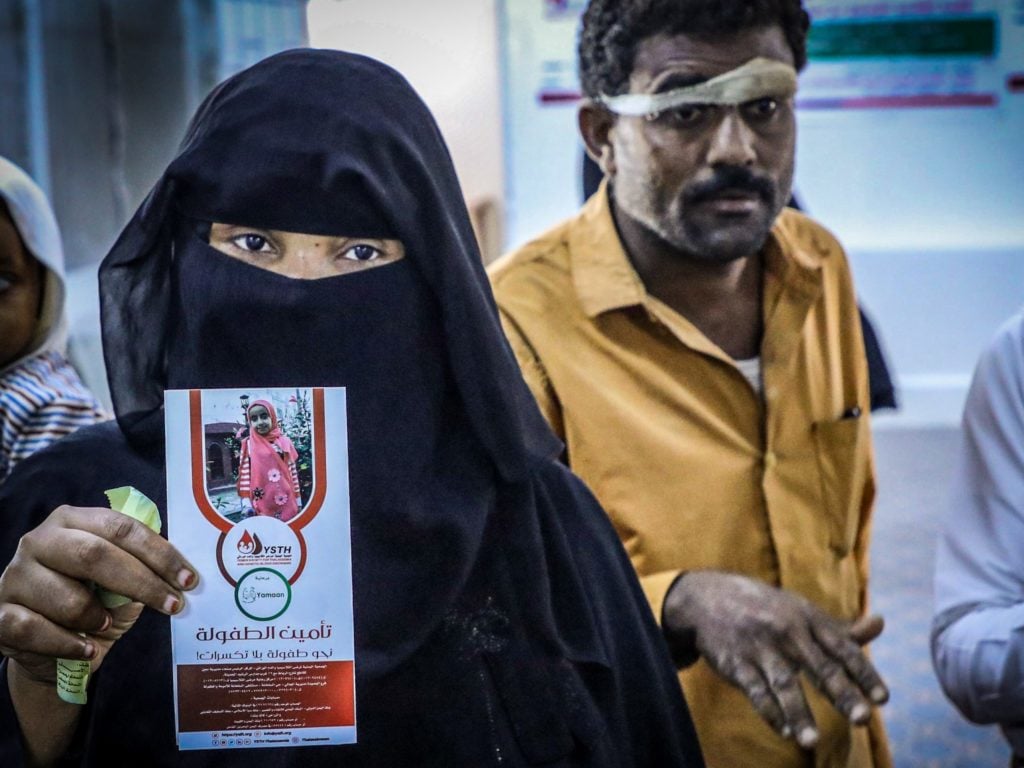The war in Yemen has caused the largest humanitarian crisis in the world. The conflict escalated in 2015 and today 21 million people need urgent assistance in the form of food, water, shelter, and healthcare.

How to efficiently address the suffering in this torn country at the southernmost tip of the Arabian Peninsula? And what need to be the priorities of the international community in this regard?
“The men made war but hopefully the women will make peace.”
To answer these and other questions, Cordaid, in collaboration with Yemeni partner organisations Family Counseling and Development Foundation (FCDF) and Yamaan Foundation, organised a conference on Yemen on December 2, 2021, in the The Hague Humanity Hub.
Stronger position for women, safer society
Its purpose was to draw attention to the political and humanitarian situation in a country that is largely forgotten by western media. Experts, donors, journalists, and policymakers focused on the main theme of the conference: the position of women in the Yemeni war.
The Yemeni women in this video are doing everything in their power to improve the situation in their country and tell us more about what we need to know and do to achieve peace:
Women and children suffer the most from the consequences of war and often cannot rely on essential health care, such as trauma processing or care during pregnancy or childbirth.
Women also play an indispensable role in the resolution of the conflict. The assumption is that a stronger position for women ensures a safer society.
“If we want to provide aid effectively, we will have to better understand the context in Yemen. This conference will contribute to that.”
“Yemen deserves our attention,” says Sam Geus, organiser of the meeting. “The needs are enormous. In addition, the conflict is extremely complex. If we want to provide aid effectively, we will have to better understand the context in Yemen. This conference will contribute to that.”
The conference programme
In the plenary room, Yemen expert Laila al-Zwaini outlined the current state of the conflict and what this means for the female population. The ambassador for the Netherlands in Yemen spoke about international policy and the founders and presidents of Yamaan Foundation and FCDF highlighted the importance of mental health and psychosocial support in times of war.
In this video, Jamal Badr, who works for Cordaid in the Netherlands, tells us about his life in Yemen and his experiences after the war started.
Calling attention to the crisis
One of the goals of the conference, calling the attention of the Dutch media to the crisis in Yemen, proved successful with multiple publications in national media outlets, such as the renowned newspapers De Volkskrant, NRC and TV news network NOS.
Laila al-Zwaini, who gave a brief and general outline of the political context in Yemen, alleged during the first plenary session: “The men made war but hopefully the women will make peace.”
Dr Bilqis Jubari, chairwoman of FCDF, claimed that “mental health is a human right and that you cannot separate a person’s psychological suffering from the economic, social and security crises they are coping with”. Her recommendation: mental health and psychosocial support must be seen as integral, cross-cutting components in all humanitarian interventions.
One of the key points made during the workshop on sexual health and reproductive rights is that also maternal and child health care, actions against gender-based violence and women empowerment are not sufficiently integrated into humanitarian and development interventions.
Cordaid in Yemen
Since 2018, together with a number of Yemeni partner organisations, Cordaid has been working in Yemen on emergency aid and healthcare, with a substantial programme for mother and child care in the northern province of Damar.
In the capital, Cordaid also supports partner FCDF in providing mental care and psychosocial support services to people with mental disorders. In four clinics employees are trained to recognise and address psychological problems. Volunteers are also trained to identify and, if necessary, refer people in psychological distress.
Together with our Yemeni partners we also provide emergency aid, including food, water, hygiene, shelter, and financial support. And we help to prevent the further spread of the COVID-19 pandemic.

